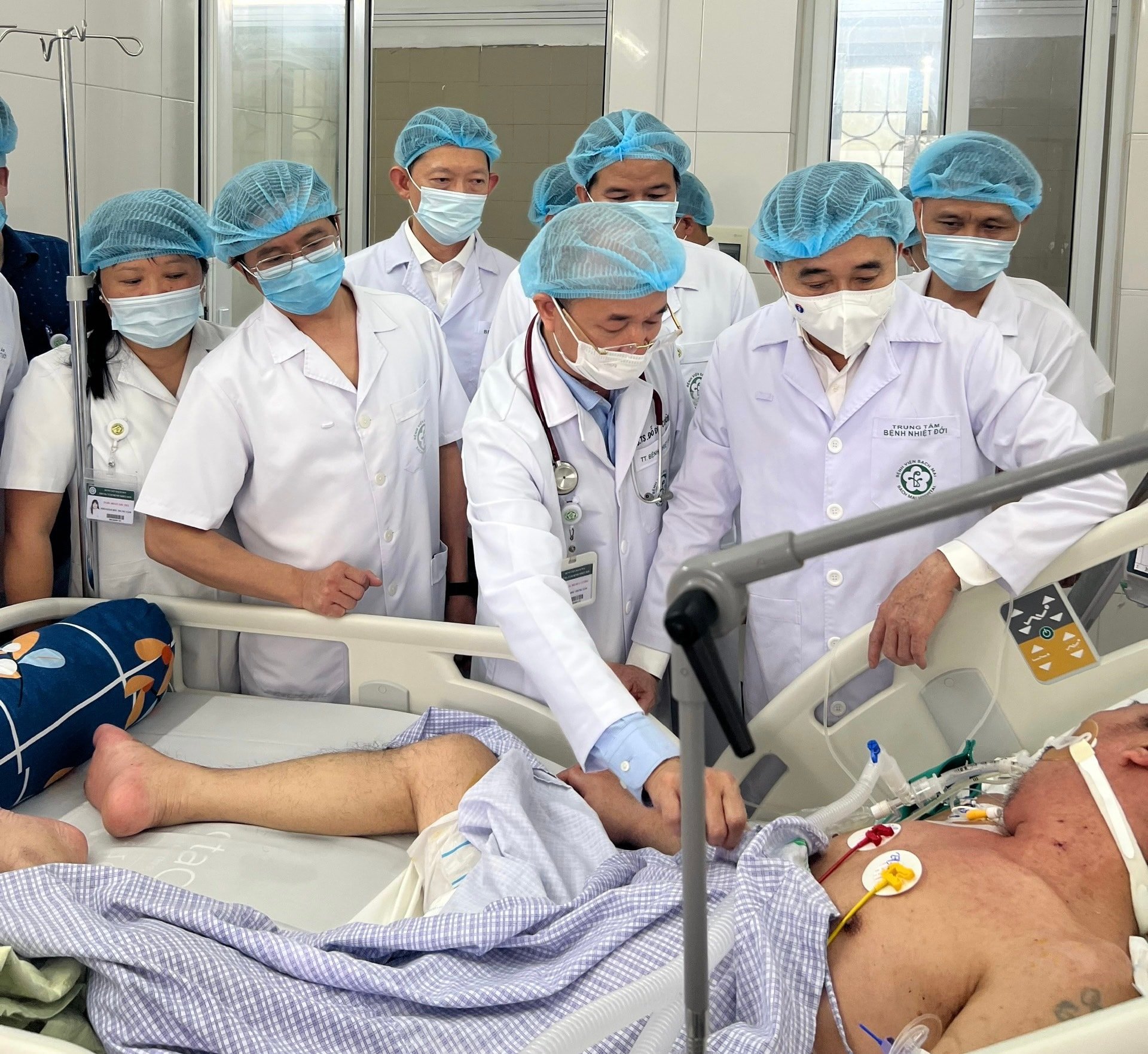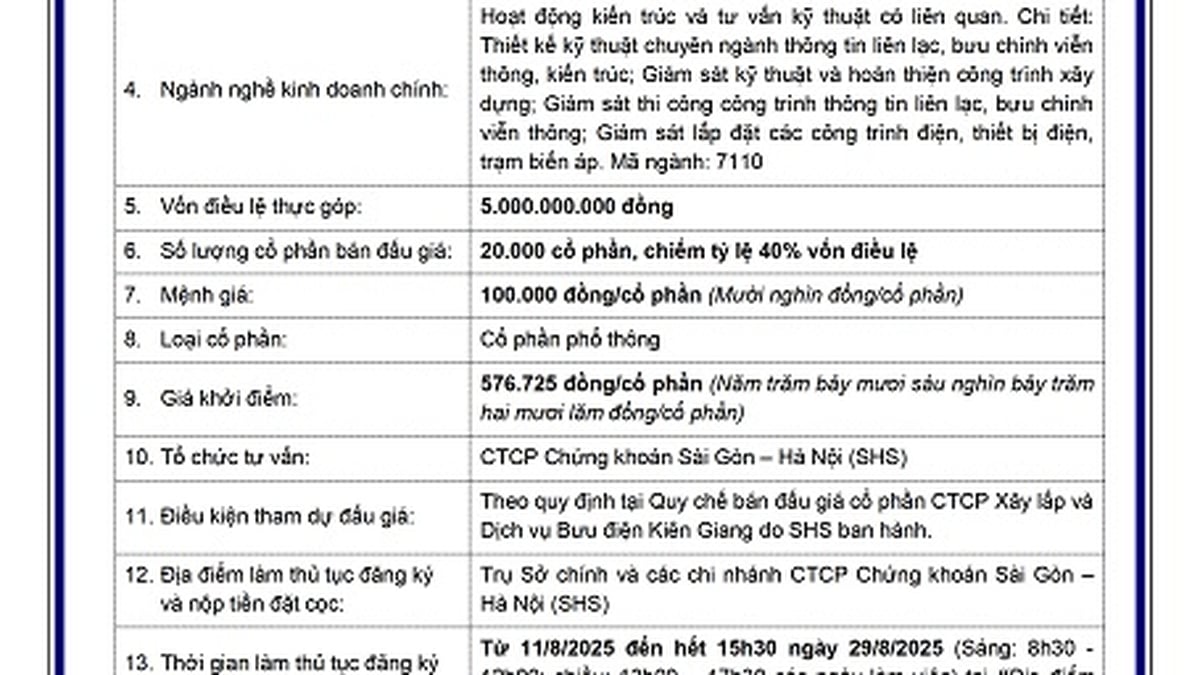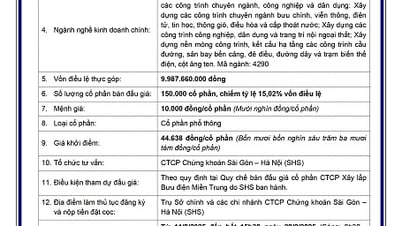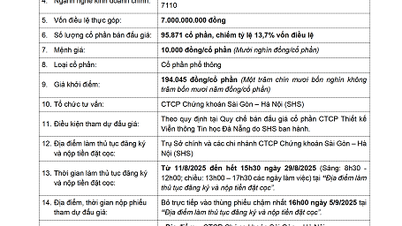The patient died of measles on a background of chronic obstructive pulmonary disease and diabetes. The patient was hospitalized with severe pulmonary complications, requiring dialysis and ECMO (artificial heart and lung device). After 2 weeks of intensive treatment, the patient did not survive.
Measles in adults is complicated at the Institute of Tropical Medicine (Bach Mai Hospital). Photo: Le Hao
Associate Professor, Doctor Do Duy Cuong, Director of the Institute of Tropical Medicine (Bach Mai Hospital) said that since the end of 2024, the hospital has received hundreds of measles cases in adults, with an average of 10-20 cases per day.
Common symptoms include fever, rash, cough, watery eyes, and runny nose. However, many patients develop severe complications such as pneumonia, respiratory failure, increased liver enzymes, diarrhea, and even encephalitis and meningitis.
It is worth mentioning that most patients have not been vaccinated or have not had a booster shot. In addition, about 5% of hospitalized patients have complications such as: upper respiratory tract infection, pneumonia, increased liver enzymes, liver failure, multiple organ failure requiring dialysis, respiratory failure requiring endotracheal intubation, etc.
Previously, the Department of Disease Prevention ( Ministry of Health ) suggested that the Institute of Tropical Medicine study the epidemiology of adult measles cases to know the rate of community immunity for adult measles cases, thereby making appropriate recommendations.
Measles is a highly contagious respiratory disease that can easily spread to the community if not controlled. Therefore, when a patient is diagnosed with measles, they must be immediately isolated for treatment to avoid spreading the disease to other cases.
Many people subjectively think that measles is just a mild disease, which will go away on its own after a few days. However, in reality, the disease can cause dangerous complications if not treated promptly. In particular, cases with underlying diseases such as diabetes and immunodeficiency are at higher risk, easily progressing to a serious condition requiring mechanical intervention.
Therefore, when experiencing symptoms of fever, rash, or prolonged cough, patients should go to a medical facility for examination and treatment.
“Currently, in Vietnam, measles is on the rise, not only in children but also in adults, especially those with underlying diseases or weakened immune systems. Therefore, getting fully vaccinated not only helps protect yourself but also helps control the epidemic in the community. Measles is not as simple as many people think, so take the initiative to prevent it before it's too late,” Associate Professor, Dr. Do Duy Cuong emphasized.
Measles vaccine is included in the Expanded Immunization Program, given to children from 9 months, then given again when the child is 18 months old or 2 years old. For adults, when the immune system is weakened, they also need to be vaccinated again. If they have not been vaccinated or do not remember their vaccination history, they need to be vaccinated again with measles-mumps-rubella (MMR) vaccine.
Source: https://baotuyenquang.com.vn/ca-tu-vong-do-benh-soi-dau-tien-o-nguoi-lon-209912.html




































































































Comment (0)